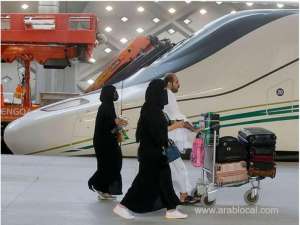The Hajj and Umrah Ministry has issued a strong directive to all Umrah companies and establishments participating in the new Umrah season of 1445 AH. They are required to strictly adhere to the services controls' document designed for the convenience and safety of pilgrims and visitors of the Prophet's Mosque coming from outside Saudi Arabia. Let's delve into the key provisions outlined in this document.
One of the important stipulations in the document is that pilgrims under the age of 18 must be accompanied by a companion throughout their journey. This ensures their safety and well-being during the pilgrimage.
The contracted services for pilgrims must include essential components such as the place of residency, transportation within Saudi Arabia, insurance coverage, and ground services. These services must be reserved within the approved program, and the duration of the program should align with the actual length of the pilgrims' stay in the Kingdom.
To maintain control over the number of companies and establishments operating in the Umrah sector, the document classifies them into three categories: A, B, and C. This classification is based on their performance over the past two years. Companies in the category C, which are newly licensed, have an opportunity to move up to a higher classification based on their performance during the initial 90-day operational period.
Companies classified under B and C must meet specific numerical targets to advance to a higher category, except for those in category A. Failure to achieve the required numbers restricts them from admitting new pilgrims unless it aligns with their actual performance during the current season.
This classification system aims to enhance the quality of emerging establishments and companies while reducing the costs associated with Umrah programs, ultimately leading to increased participation.
The document also emphasizes the importance of actual reservations through the Nusuk app after the issuance of the visa. It is essential to synchronize the pilgrims' program with their reserved slots for performing Umrah or visiting the Prophet's Mosque. Permits in the Nusuk app are considered active and approved, unless the pilgrim's entry to Saudi Arabia is not confirmed within six hours of the permit's start time, in which case the permit is automatically canceled.
In case of any program amendments, previously issued permits in the Nusuk app should be deleted, and new permits should be reissued according to the updated dates of the program. Preparatory data must be entered at least 24 hours before the arrival of the pilgrims.
Transportation arrangements, including grouping orders for land, sea, and air ports, should be coordinated by the companies. The grouping orders must be based on the latest updates to ensure smooth movement between destinations. In case pilgrims arrive in separate batches or at different times, companies must follow the guidelines provided by the General Syndicate of Cars (GSC).
Companies are responsible for the transportation and services of pilgrims within Saudi Arabia until the end of the contracted program and before the visa's expiry. They must stay updated on the requirements of air carriers concerning the pilgrim's country of origin to avoid any travel complications. The authorized company is accountable for the pilgrim's welfare throughout their stay.
To ensure organization and safety, pilgrims must be grouped and guided from their residency place to the Two Holy Mosques for Umrah or for visiting purposes. Each group should have a designated leader who is responsible for maintaining discipline and addressing any violations or issues that may arise.
Companies and establishments must enter the departure data of pilgrims through the platform and provide a list of passengers' names on each bus to the driver. They are also responsible for guiding buses to the designated grouping centers for departure procedures and ensuring that pilgrims are aware of customs regulations regarding prohibited items upon arrival or departure.
It is crucial for companies to offer necessary services for pilgrims during their stay in Saudi Arabia, including the provision of representatives who can accompany them during visits to historical sites. Companies should also have contingency plans in place to ensure the safety of pilgrims in case of inclement weather.
Moreover, companies must provide management and field personnel to assist pilgrims, provide them with electronic guides, and maintain effective communication. The number of representatives should be appropriate to the number of pilgrims, as determined by the Ministry.
By implementing these controls and guidelines, the Hajj and Umrah Ministry aims to enhance the overall experience of pilgrims, prioritize their safety and well-being, and ensure a smooth and successful Umrah season for all.









